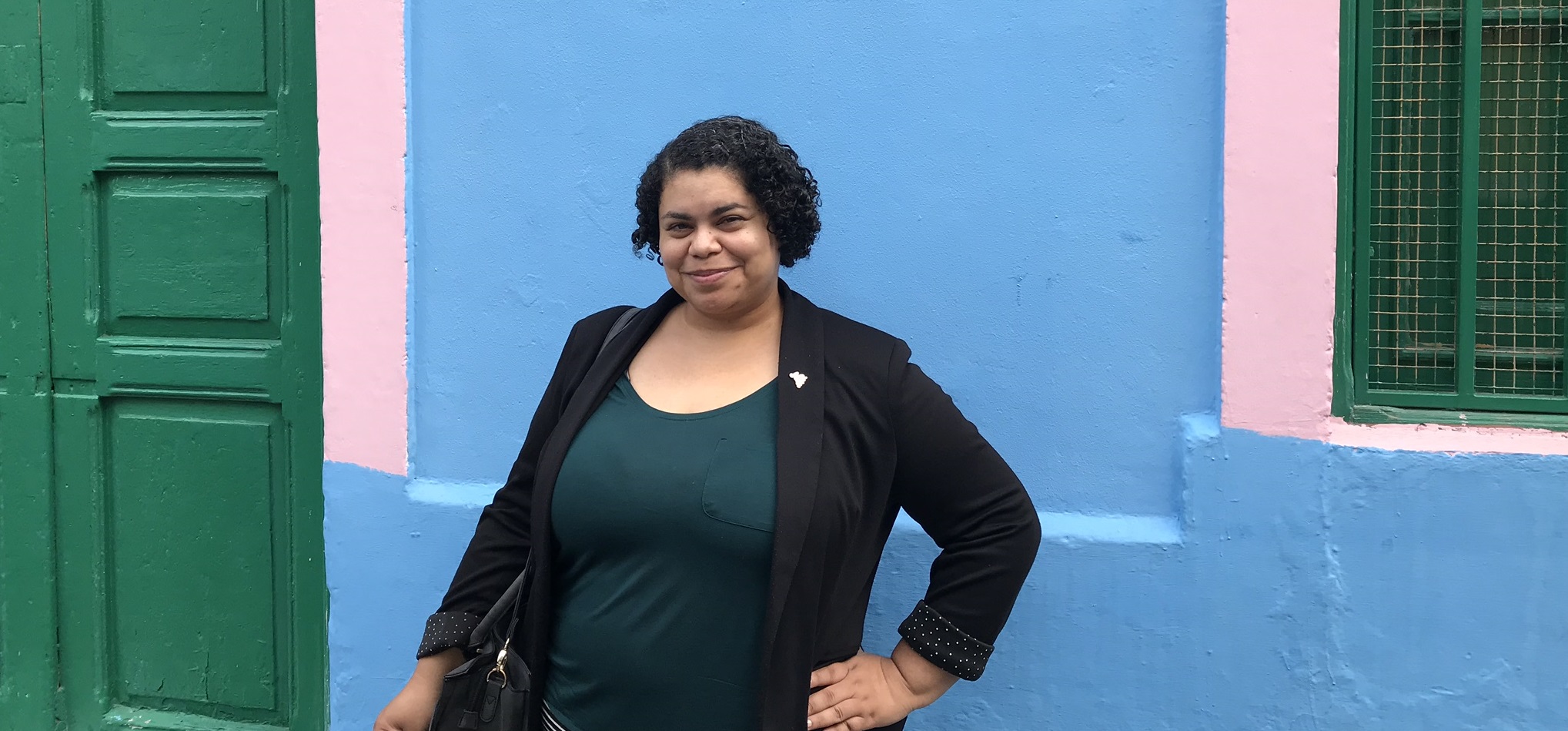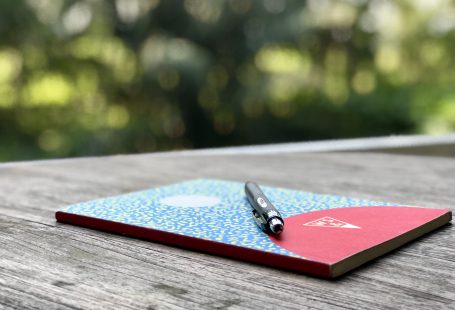This week’s Lifestyle Redesign interview is with Janet Alexandersson. We met at Restation the Coworking space in Gran Canaria, while we were both working there in January 2018. Janet transitioned from being a Swedish lawyer, based in Sweden into a location independent worker, now based in Las Palmas, Gran Canaria.
She currently helps start-ups incorporate their businesses, as well as with things like legal issues and contracts. In working in this area, she also found a lot of scammy practices within the start-up industry, so she helps startup employees interpret their contracts and ensure they get the best deal.
On top of all that she’s also working on a fascinating project that is highly likely to impact all of us at some point. It’s linked to how the corporates of today are governing our lives. Since Janet and I did this interview, there has been massive fallout with the Facebook and Cambridge Analytical trial, which sadly is a perfect case study of corporations abusing their power and making decisions for us.
Keep scrolling to read the interview or you can listen in to the podcast to hear Janet and I chat. There are links at the bottom of this interview to Janet’s projects if you would like to read more.
Let’s talk briefly about who you are and what you do. You’ve got a very interesting story and I’m dying to let all the listeners hear more about it.
I’m a Swedish lawyer. I used to work traditionally but these days I work remotely. So my work is mostly start-ups. I help them with contracts and starting their businesses and incorporating, and in doing so, I also found that there’s a lot of scummy practices going on with employment contracts. I’m also helping startup employees interpret their contracts and see what the limits are, what they can do and how much they can get out on their own.
Wow, so you are a traditionally trained lawyer. Have you worked in a law practice … were you desk bound before?
Yes, I was desk-bound and I was also court bound so I used to litigate, but, I transitioned from that into working on my own.
That’s quite a big thing to do. I might be wrong, but I’ve not heard of anyone else who’s lawyering as you might put it, remotely. How on earth did you manage to do that?
It was kind of by happenstance in the beginning. I got out of university, set on doing human rights, but found that industry was not the way I thought it would be. It was more business-like. I found myself north of the Arctic Circle in Sweden, in the darkness, trying to work for an NGO and I couldn’t do that anymore. So, I taught myself how to make websites and set up my first online law firm about 10 years ago.
So you must be one of the first doing that?
I was the first in Sweden doing it, and it took a while to get traction because most people weren’t really trusting the online buying of legal services, it’s not like it is today. So I did that for about a year and then I decided to get actual litigation experience, so I went to work for a traditional law firm.
And where was that in Sweden?
In Stockholm. It’s just a normal law firm taking on everything from family law to business law to property law.
I’m guessing you didn’t really enjoy it that much otherwise you wouldn’t be here right now?
I did not enjoy it fully. I think the law would be more interesting without the clients because they mess it up but, it was ultimately too much for me. The average Swedish lawyer or attorney has about 60 ongoing cases, and by the time I quit, I had 120.
Oh, my God. I mean was that because you were so good? … Typically, if someone is good at something they just keep piling it on?
I think it was mostly that this law firm had unstable practices and wanted to have as many cases as possible. 124 I couldn’t manage because I couldn’t remember my name but, up until 100, I could manage.
I just got burned out I think, so I decided to not keep doing that, and I had also kept my law firm on the side. So I decided to quit and go back to that.
One of my questions is how you avoid burnout? I guess you decided, you’d had enough of the situation, so did the wise thing and found something new?
Yeah, I think it was more of a necessity because I would have been in a full burnout whereas then I wasn’t. Although I might have been in denial, it might have been a full burnout because I displayed most of the symptoms.
I just went back to having minimal cases, as I still wanted some more corporate experience. So, I applied for a legal research position at a legal publishing house in Stockholm, but the first day of my work I was put in sales, so I was doing telephone sales.
And how did that go?
Well, I didn’t sell anything, mainly because I didn’t call anyone. I was really afraid of the phone in that sense and … but I was really creative in marketing and trying to come up with other ideas, so I didn’t really have to call anyone. So when I decided to quit after three months because I wasn’t really working properly, I was asked to start a marketing department instead.
Oh wow, well that’s great.
Yeah, that was great. I started off like that, and that was interesting for six months but I still felt that I wanted to have the freedom to pursue my ideas and make something successful, and also if I make something successful, that I get the benefit, not some employer.
I had tons of ideas that didn’t have anything to do with legal work, but I still had my law firm if I wanted to, so I just started out trying all these different things. From Facebook page building for lawyers to advise on how to start a new business, or apps on preserving your memories, or anything you can think of I tried in the past five, six, seven years.
But I always came back to kind of the human rights issues or legal issues, also I like thinking of futuristic trends.
That’s one of my favourite topics. So, what are you working on right now?
Right now, I’m working on a project that kind of combines legal philosophy and online communities. So the trend now is that we’re governed a lot by corporations and we don’t really realize that we are. Usually, we’re used to governments and countries setting the laws for us and we either like them or we don’t, but we follow them because there are consequences.
Online, communities like Facebook and Instagram and Airbnb and YouTube have all these community guidelines, and they work exactly the same way as the law does. So you might not be able to post certain comments, or behave certain ways, or use the platforms in certain ways, or you get banned or your content gets removed or, you can just be suspended and not know why, and this has consequences that you don’t really think about.
It’s one thing to be banned from Facebook but imagine if you’re banned from Facebook and Twitter and Instagram and YouTube.
And you don’t exist?
Essentially, you don’t exist but also you don’t have access, so a lot of the services you used to sign into other things. A lot of people use social sign in. But if you’re banned, you’re not going to have access, and imagine if you’re a marketer, and you’re looking for a new job, and you’re banned from Facebook and YouTube and Instagram, how are you going to get a job?
So, my issue with this is that it’s not predictable. Some communities have really strict guidelines but they’re forcing them randomly. And some have very loose guidelines also not enforced in a predictable way.
You might not get any reason why you’re banned even and you can’t appeal this decision, so essentially these communities are both the police and the judge in the same case.
And I don’t think they want to be, and no one’s really looked at this. So what I’m doing is taking a realistic approach and seeing what are the best practice guidelines that we can come up with, is there a way for the corporations to have part of the burden lifted from them because I don’t think they want it. So we can have an independent arbitration system and kind of streamline things.
That sounds amazing. I recently got a banned from a Facebook group. Just posting a link to my blog which I know in hindsight I shouldn’t have done it, but to be honest, I joined up to so many Facebook groups it’s not something I use very often. Every single one has got a different rule and you know, I was thrown out. I felt quite embarrassed about it, but I kind of I learned my lesson.
Is it going to be aimed at somebody like me that might be wanting to use it for marketing purposes or is it aimed at the companies from a more social humanitarian standpoint?
It’s going to be more aimed at the companies but I also want the people that get banned or are choosing to join a community, to know what rules are there, and what the process is for them to get back in as you said.
So if your banned, I want there to be a site for you to go to and see that this has happened, this is probably what I did wrong, and this is how I can make amends and come back in. Because being banned from some of these groups indefinitely would probably not be viable for some people in combination with their careers.
Right, because it’s so important now. Somebody was saying recently on Linkedin, how important it’s going to be in the future; what your social profile looks like, how many followers you’ve got, how much influence you’ve got because that equates to power.
From a community standpoint, I think they also want particular profiles, so some of them allow a lot of different content, a lot of offensive content. Some want a very clean environment even appropriate for kids, so the guidelines themselves are not as important as how they enforce them.
So, one of the pillars of the legal system is that it’s going to be predictable. And you can kind of see that if I behave this way, this is what’s going to happen. But with these guidelines, the same behaviour will not affect people the same way.
So, they’re not moderating actively all of them, so some things slip through but you might be harshly punished by being banned for something that someone else didn’t even notice someone else doing.
It’s frightening. It’s really, really frightening and as we were talking earlier, I don’t know anyone else is talking about this, so it’s good that you are.
Okay, so I’ve got some more questions for you. So when did you actually start working remote or digital nomading?
I started as a location independent worker, which means that I could work from anywhere back in 2011. But I didn’t go nomadic until two years ago.
I started on a project where I was interviewing futurists about different trends in the world and how they saw the kind of different threats to humanity, and it became a book collaboration with them. For example, the AI expert Nick Bolstrom was part of it and I kind of wanted to see these things that they were talking about in practice, so I became more nomadic two years ago.
Wow, amazing.
Yeah so I’ve been a nomadic as a digital nomad for two years but I’ve been able to travel if I wanted to for about seven years.
And why have you left?
I started off in Barcelona, and I travelled kind of slowly so I’m not like two weeks in a backpack person. I’ve found living places and I stayed for longer term, so I was in Barcelona for a couple of months and then I was in London for another couple months.
Then back to Barcelona because it’s winter time. I’ve been doing stints in Sweden in between as well, but after that, I came to Las Palmas for the first time and I really enjoyed it so I stayed for a lot longer than I was planning and then I headed off to Medellin in Colombia-
I want to go to Medellin
Yeah, it’s an interesting nomad hub these days. And then after that, I’ve been to Berlin as well for a while and now I’m back to Las Palmas.
All countries I want to go to. And so how are you finding these places? Are you looking at the co-working spaces in the community first and then the accommodation and the other kind of facilities like maybe the weather or various different things? How do you even select them?
The first one I selected in Barcelona because they had an event called The Entrepreneur House, so you were living together with entrepreneurs for a month, and doing like a co-living, co-working type intensive, and then I just stayed on and some other people also stayed on from that group for a bit longer.
So that was my first choice because I wanted to be in a community not just aimlessly with a backpacker crowd, and that’s the same for Las Palmas. There’s a co-living/ co-working space that I was applying to. For Berlin, London and Medellin I didn’t do this. I think that created a different experience for me and I prefer the one where I’m actually part of a co-living, co-working hub with a community. I’m not really travelling to travel, I’m travelling to work and to live my life this way so I want to connect with other entrepreneurs.
I think that makes sense and it’s certainly what I’m looking for. I’ve just started and that’s why I’m so interested in hearing your experience but I think that having been in a co-working space in London even though I wasn’t living there, made such a difference to my life just from the people around me and that’s how I chose Las Palmas. I think, especially in big city London, Berlin, those kind of places, it’s very easy to become very lonely very quickly.
Yeah that happens so quickly in the big cities but also if you go to more like vacation destinations you quickly fall in with the tourists. So you’re not really working you’re just out there partying or having fun which is not the best idea.
I’ve been doing this for just over two weeks and the one thing I have to say that, I think everyone from the outside thinks that oh, it’s great you know, you live in Las Palmas, there’s a beach, blah blah blah blah blah, you’re having fun. Everyone works really, really hard here.
Yeah, I think that happens. Maybe you might even work harder here than you would at home. But also people are working on their projects here, so they want to work on them. This is their thing, this is what they’re doing with their lives.
And if you take a walk by the beach, you feel like you’re on vacation but you quickly go back to work again. So I think you get a better balance because you have a bit of a vacation every day built into it.
For me, the weather here hasn’t been quite as I expect it. It’s been slightly stormy and rainy, but it’s still a significantly more temperate than London is, and just the fact that there’s no commute, you’re not going on the tube, that you can just walk to the beach, I think has a really big impact on your mindset.
Yeah but I also think you don’t have to be in a sunny tropical destination for that, I think it’s mostly getting out of your comfort zone, like creating a new pattern for yourself.
So maybe the way you work, even if you’re a location independent worker in London, would not be the same you work from Prague, or from anywhere in the world.
I think your location influences how you approach work as well, and you might find a way that works better for you by removing yourself from the thing that you used to just follow the pattern from.
I think that’s really interesting. There are a lot of people here trying out new ways of working, so people seem quite focused on productivity. How can I get the most amount of work and be the most productive as quickly as I can, so I can then go out and go to the beach for an hour?
I think that’s one of the great things for me with Las Palmas is that the sun comes out at 1:00, so I work till one o’clock. And that works for me because I’m a morning person, so I have that system here and then you have the afternoon off. I usually don’t take the afternoon off, because I still enjoy my work too much, but I can theoretically take the afternoon off.
That’s my problem too, forever working. And so how did your family and friends take it when you decided to do this work. ‘Obviously if you’re on all the groups on Facebook, there are whole big communities of nomading but actually when you start explaining it to people that you know people, or people in the business contacts, a lot of people I’ve spoken to like really have no idea what I’m talking about. How did your friends and family take it?
My parents, I think are so confused about what I do. So they say I work on the computer. I think they’re supportive of the travel if I go to a warm destination because that makes sense to them, but going to London or Berlin didn’t make sense to them.
So they’d see it more as like pleasure I think, the travelling. Friends have been a mixed bag. I think some of them are on a very traditional path, with children and work … which is right for them, but I think if I say that I’m doing something different, they take it as criticism of their lifestyle.
So they’re talking about all the negative things that could happen. What if you never find someone, what if you don’t get a house, all the things that they have that they presume that I want. But I think you just have to be intentional with the people that you keep in your life and how you keep in touch.
I think that’s the biggest challenge. How do you stay a part of your friend’s life when you’re not in the same location and very rarely meet. I think that’s more the difficulty and also making long-term friendships on the road. But generally, they’re supportive, they’re confused but supportive.
I’ve had a lot of really positive feedback from people in the business sphere. They’re like gosh, I didn’t know that existed, but how amazing. How can I do it? Which is one of the reasons I wanted to talk to you? To meet somebody that’s doing something that’s considered like I said before, very deskbound and you’ve transitioned that into this amazing opportunity.
It’s very rare. So obviously travel must inspire you or you wouldn’t be doing it. What else inspires you to get up in the morning and keep coming out with these new amazing things?
I just like exploring. For me, travel is kind of a vehicle to make sure that I see new things. That’s what gets me excited, to experience something new or something strange even, it doesn’t have to be like a good thing or something that most people appreciate. The randomness of the encounters keeps it fresh for me, whereas if I go to the same office every day and meet the same people, I kind of got that figured out after six months, and then not so interesting anymore.
For me a traditional career will be more difficult because staying six months in a job and then going to the next it’s not particularly something that employers like. It’s not going to look good on your resume. The travel kind of serves a vehicle for the exploration. You don’t necessarily have to travel, just be in a place where a lot of people are coming and going and you still get the excitement of new things. So I think that’s part of the inspiration that’s connected to the travel part.
I guess it’s just being open and meeting new people that you might not normally. I think that’s what I really like doing. Sometimes there are people that you meet that you just think, oh well, they may not be my kind of person but actually after conversations, you learn something new.
And it’s also interesting because you’re used to putting people in a box in a certain way in your own community, and you apply that on the road to people you meet, and it never works. They’re so multi-faceted in a way that you’re not in a traditional job because you’re not really allowing those parts of yourself to come out when you’re just in one place. I am a marketer for example, and then I do this type of marketing. But you’re also all these other things that you’re interested in.
I think once you get set on a career path, you forget all the other interests because you never really have the time or you think you don’t have the time to pursue them because it’s not going to become a career or it’s not going to be helpful for your career.
But these people on the road are more pursuing diverse interests, so you get people who are into crypto but also at the same time are vegans or they’re into fly fishing or any other thing that you think is not possible. I met a guy who’s managing a rodeo clown, which I didn’t even think was a job! So, you meet the most random people doing the most random things on the road and I think that’s amazing.
What I do think is really positive about co-working spaces, is that they encourage you to give talks, and show off your skillset. I’m like okay, so my only skill set is selling products or marketing consumer electronic products. I thought that was my only skill set and then after having conversations with people, I’m like oh gosh, I have this skill, or this skill, or this skill that I never really realized was a skill or was was even worthwhile. And that’s been massively positive for me.
I think the things that you count as skills are the things that you would promote to your employer. But there are so many other things that you’re good at, and they might even be things that you’re better at than the thing that you are using for your profession.
So I find that interesting and I think that’s why I keep coming back to legal philosophy because it’s in line with who I am, whereas, being a family lawyer and litigating cases where people bicker about their kids is not my thing.
So what’s the best advice you’ve ever been given and it doesn’t have to be on nomading. Can be just life advice.
I think my best advice has come from my parents ironically enough. But it’s kind of, shoot for the stars. To me, that translates to look for the biggest impact you can have. I guess the difficult path or the most challenging opportunity ahead of you and go for that one. And you might not get it but you’re going to stretch enough to get something else. It’s kind of a cliché advice but it’s still really good.
So, as a parting gift to me, what would be your top tips now I’m just starting out on the road on my digital nomad journey?
Do it your way. I think a lot of people think that you have to be a nomad in a very specific way, maybe you only stay a month or you stay two weeks and you’re going to see all these places. Or, maybe you feel like you should just move to another location, or that you want to maybe do like semi-nomadic.
So you’re nomadic during the winter months or the summer months, you don’t really have to follow the same pattern as everyone else. And focus on something that pays your bills but also focus on something that you really, really are passionate about, which might not be the same as the bill paying, and just keep nurturing that project as well, because sooner or later that might actually be your life instead of the thing you do to pay your bills.
That’s really valuable advice. That’s what I’m seeing is, that so many people are so multi-faceted. And I think it’s really enriching, not to have just the one thing, I am only a business consultant for example.
Yeah and when you take away the responsibility of maintaining an apartment, or a house, commuting, all these things that you do to maintain a normal I guess lifestyle, you have a lot more time.
Which means that, even if you still work the same amount of time, you have more free time. Which means you have time to meet interesting people, you have time to pursue these ideas that you gonna come up with because you meet interesting people.
Isn’t it a magical, we’re so lucky.
Very, very lucky.
So, you are going to be talking about a lot of really important topics. You’ve got a lot of very exciting stuff in the pipeline. Where is the best place that people can find you to follow what you’re doing?
I think the best place would be LinkedIn at this point. My personal website’s not updated, so LinkedIn is the best place. And my name is unique. I’m the only one with it, so if find something under my name, it’s probably me.
Wonderful. Thank you so much. It was fascinating talking to you and I look forward to keeping up with all the projects you are working on.





